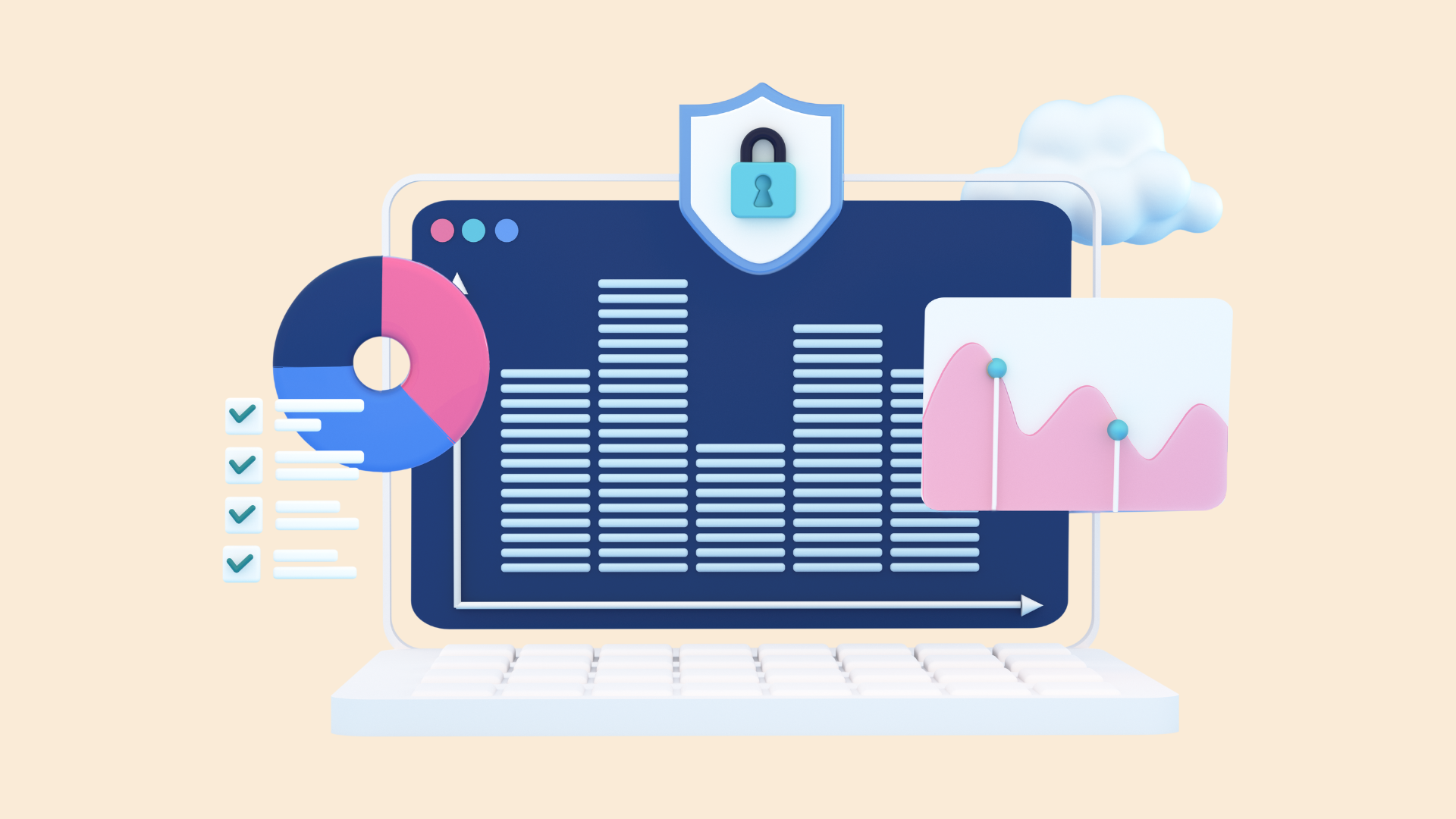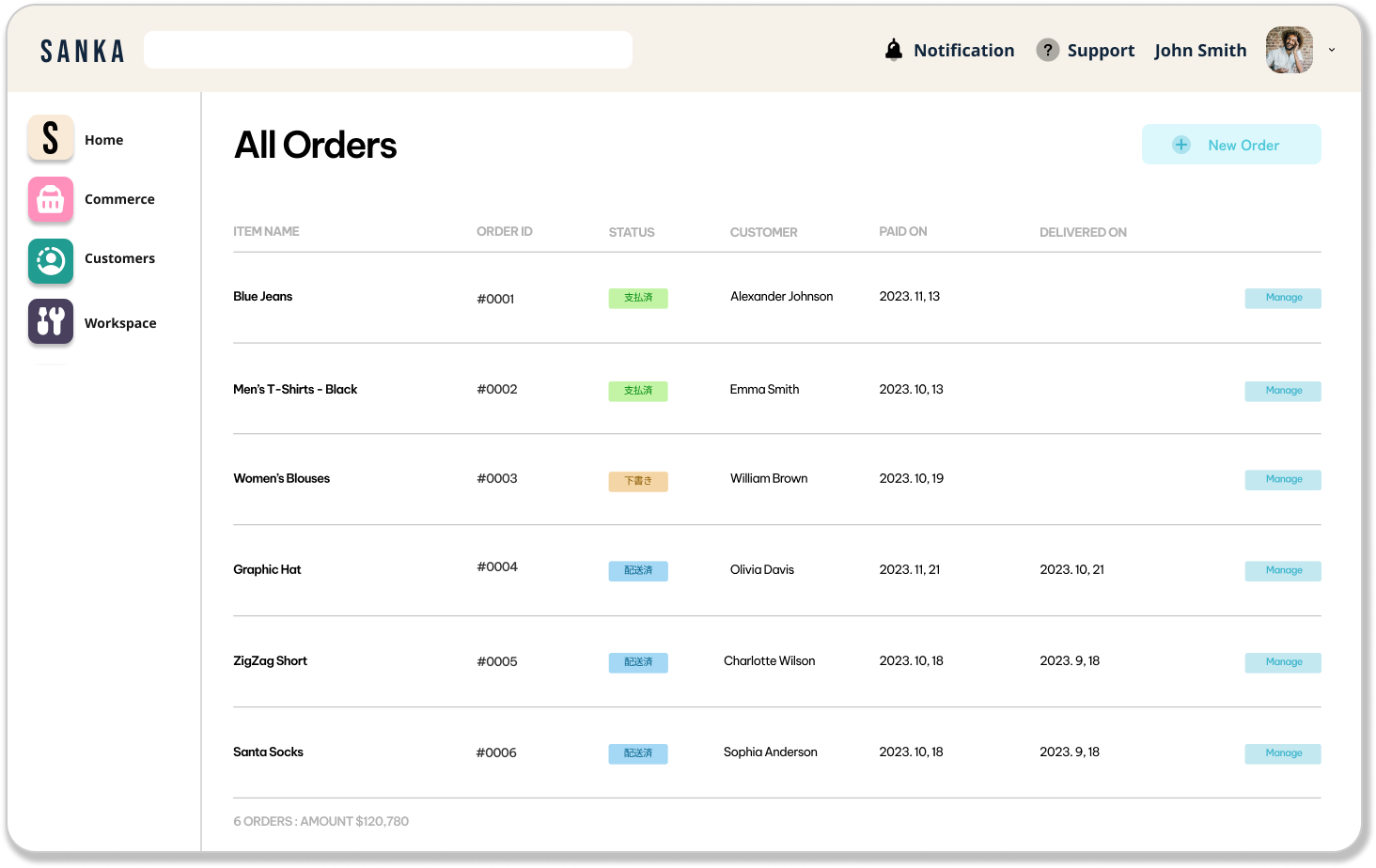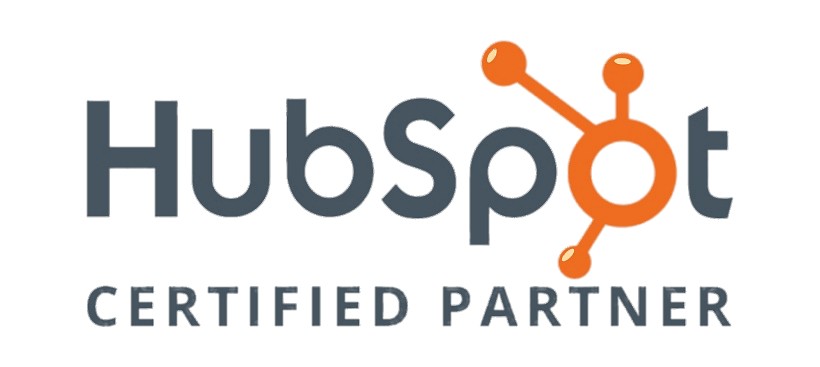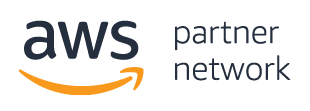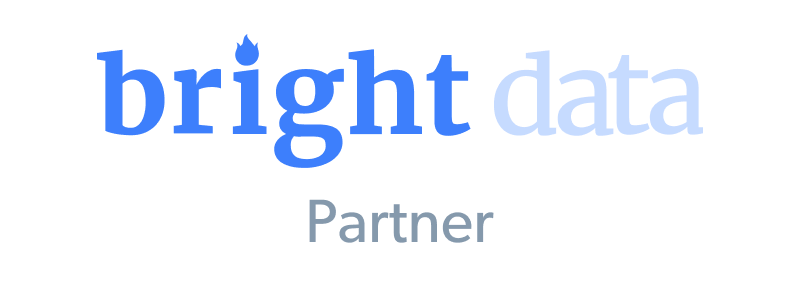Introduction
In the dynamic landscape of digital commerce, leveraging data is non-negotiable for businesses aspiring to thrive.
E-commerce data platforms are the compasses guiding retailers through the ocean of information, enabling informed decision-making and strategic planning.
From understanding your customer's journey to refining marketing techniques, data platforms provide the analytics and insight necessary for success. As the marketplace gets saturated, the right analytics tool can make all the difference.
In this comprehensive guide, we delve into the world of e-commerce data platforms, focusing on eight leading solutions that cater to various needs, including the innovative Sanka platform.
1. Sanka
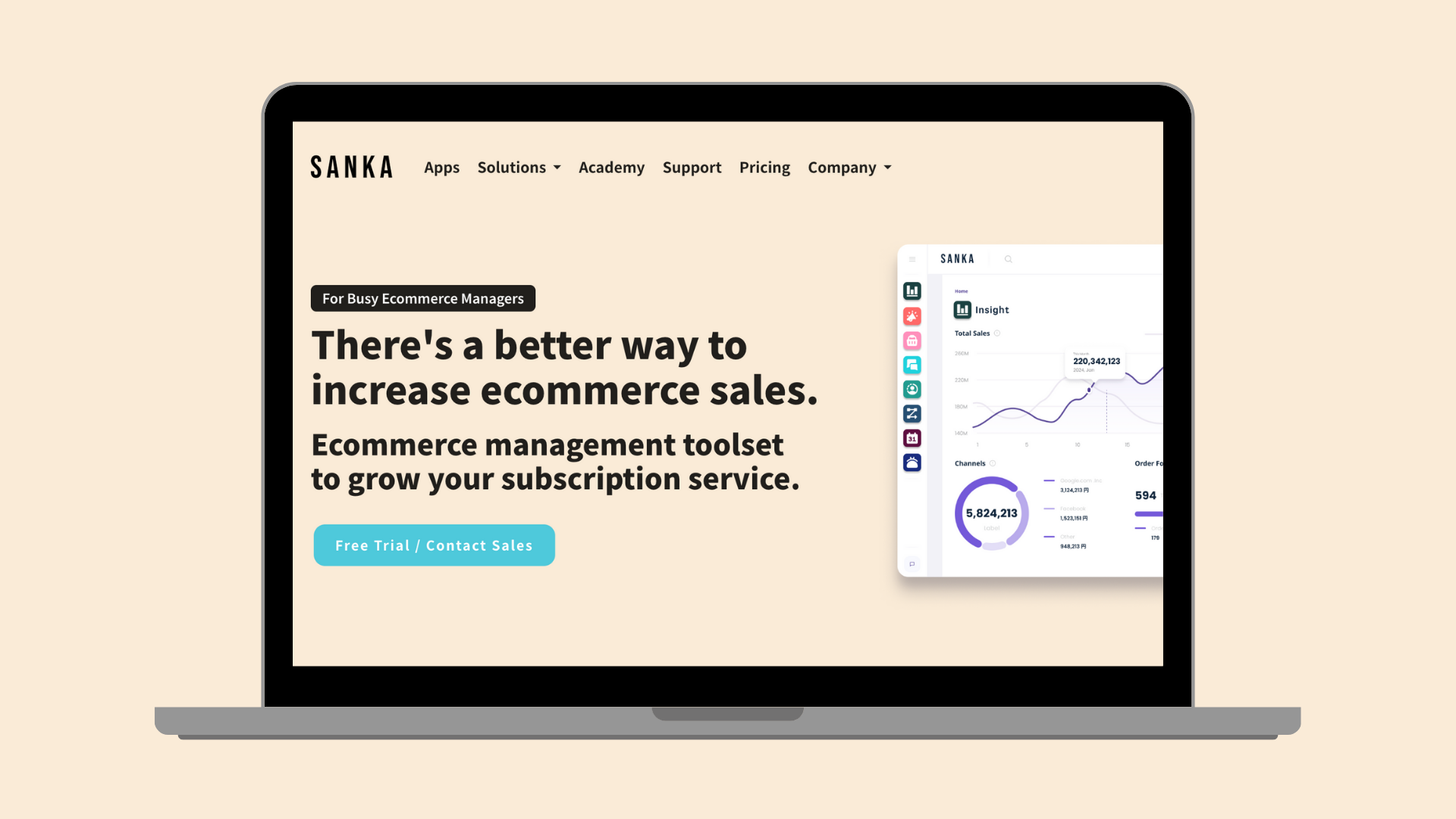
Sanka is a complete ecommerce data platform that harmonizes data across multiple streams, offering solutions for market research, ecommerce analytics, marketing, CRM, order management, and consulting.
Known for its "all data in one place" approach, it provides pivotal insights into products, campaigns, customers, and more.
Key Features:
- Market Research: Identify market trends, analyze competitors, scrutinize reviews, and tailor product and marketing strategies.
- Website Analytics: Gain insight into web traffic, user behavior, conversion rates, and revenue sources.
- Marketing: Harness first-party and server tracking to enhance cross-channel campaign and ad spend effectiveness.
- CRM: Manage comprehensive customer datasets to elevate customer experiences at every touchpoint.
- Order Management: Integrate and synchronize orders across e-commerce marketplaces for streamlined operations.
- Consulting: Benefit from over a decade of professional e-commerce expertise aimed at increasing store revenue.
Pros:
- Comprehensive Integration: Sanka brings together diverse data sources, allowing for a unified view of ecommerce operations.
- Rich Analytics: With tools for analyzing traffic, conversion, and revenue trends, businesses can make informed decisions swiftly.
- Streamlined Solutions: It offers a suite of applications aimed at managing marketing, customer service, and store growth all in one place.
Cons:
- Learning Curve: Might be challenging for newcomers to navigate through the abundance of features and data.
- Newcomer on the Scene: Being relatively new, it may lack the extensive track record of older platforms.
2. Google Analytics
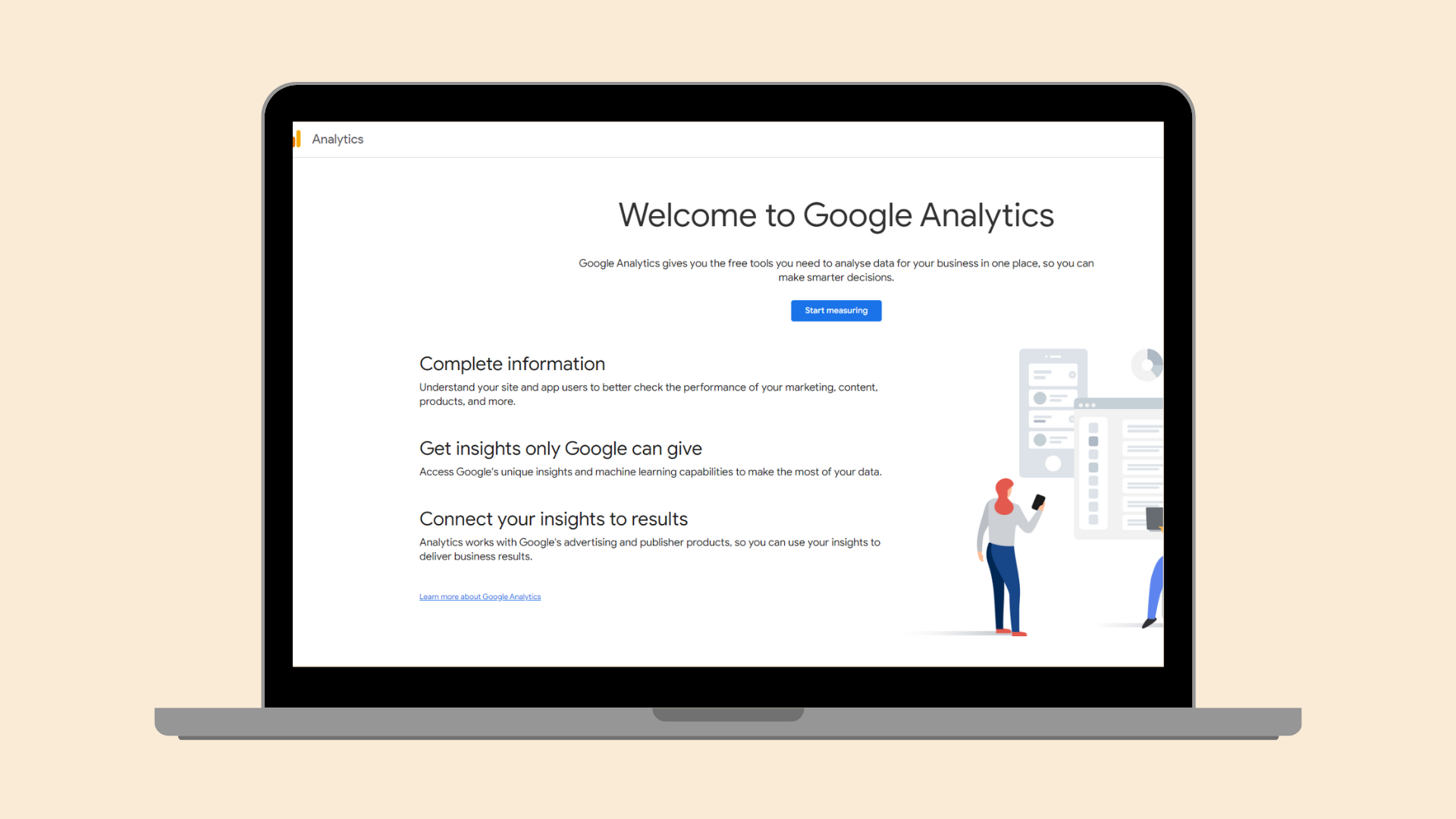
As one of the most popular analytics tools worldwide, Google Analytics offers deep insights into website traffic, user behavior, and conversion rates, making it indispensable for e-commerce sites.
It provides detailed insights into how users find and interact with your website, helping you to tailor your marketing and content strategies to better meet your audience's needs.
Key Features:
- Traffic Analysis: Understand where your visitors are coming from, be it search engines, social networks, or direct visits.
- E-Commerce Tracking: Monitor sales activity and performance. See which products are selling and what's lagging.
- Customer Segmentation: Segment users by demographics, behavior, and device, enabling you to tailor your marketing efforts more precisely.
- Conversion Tracking: Measure your sales, form submissions, and other site conversions, understanding your funnel performance.
- Real-Time Reporting: See how users are interacting with your site in real-time, allowing for immediate actionable insights.
Pros:
- Cost-effective: It's free, making it accessible for businesses of all sizes.
- Comprehensive Reporting: Offers a wealth of data about visitor behavior, traffic sources, and e-commerce metrics.
- Integration: Seamlessly integrates with other Google services like Google Ads and Google Search Console.
Cons:
- Complexity: Can be overwhelming for beginners due to its vast array of features and data.
- Privacy Concerns: Growing sensitivity around data privacy may make some users wary of the data tracking practices.
- Data Sampling: On high traffic sites, Google Analytics may use data sampling, which could affect the accuracy of reports on those sites.
3. Adobe Analytics
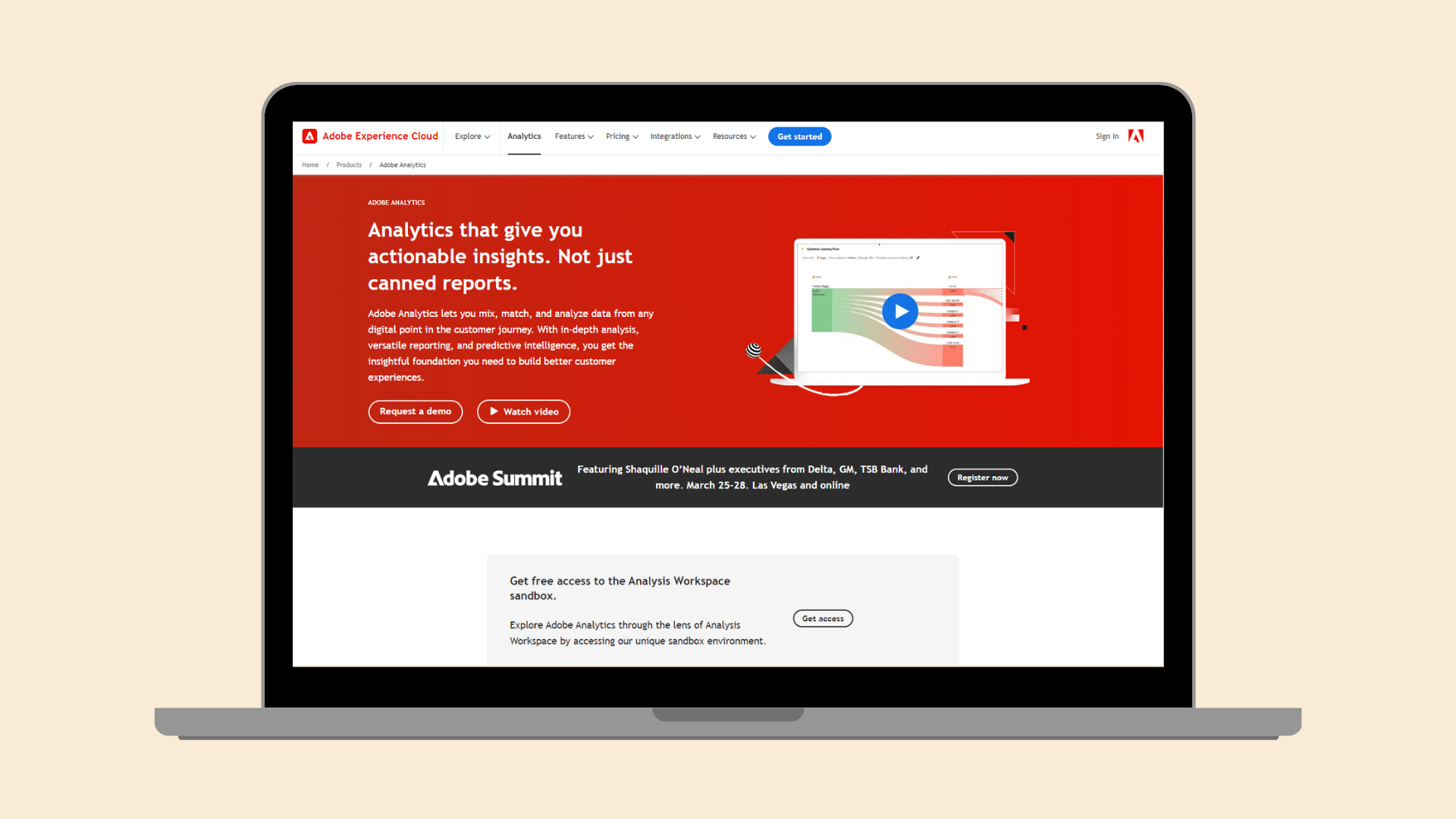
Adobe Analytics is a highly advanced web analytics service that provides real-time analytics and detailed segmentation across multiple marketing channels, offering a comprehensive view of your ecommerce performance.
Pros:
- Advanced Segmentation: Allows for incredibly detailed customer segmentation to tailor marketing strategies effectively.
- Predictive Analytics: Leverages AI to predict future customer behavior, helping businesses to stay ahead.
Cons:
- Steep Learning Curve: Its advanced features require a fairly high level of training and expertise to utilize fully.
- Cost: Adobe Analytics can be expensive, making it less accessible for smaller e-commerce sites.
4. Shopify Analytics
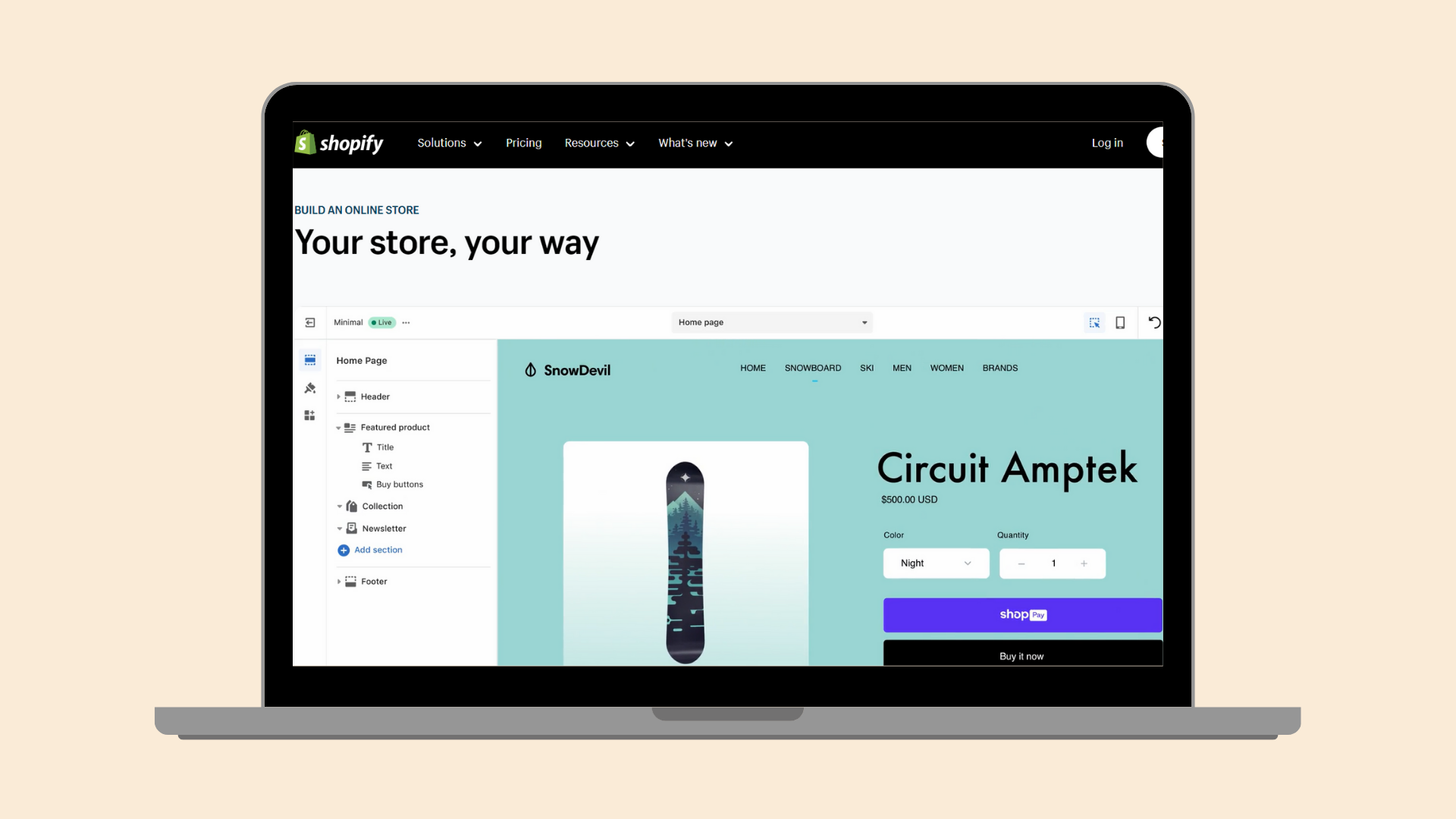
Shopify Analytics is an integrated analytics tool within the Shopify e-commerce platform.
It allows online store owners to track their store's performance, understand customer behavior, and make informed decisions to drive sales and growth.
Key Features:
- Dashboard: A snapshot of sales, orders, and online store visitor data.
- Reports: Detailed analyses on customers, sales, products, and more.
- Customer Insights: Data on customer preferences and shopping habits.
- Product Analysis: Insight into product performance, inventory levels, and product trends.
- Marketing Performance: Track the success of marketing campaigns and promotions.
- Order Analytics: Breakdown of order information to manage fulfillment and returns effectively.
Pros:
- User-Friendliness: Designed with a clean interface that is easy to navigate for users of all expertise levels.
- E-commerce Integration: Seamlessly integrated with the Shopify store, providing real-time data specific to your shop.
- Customization: Offers customizable reports to fit individual business needs.
Cons:
- Exclusivity: Only available within the Shopify platform, limiting its use to Shopify users.
- Advanced Analytics: For deep analytical needs, additional tools or integrations may be required.
- Cost: While Shopify Analytics is included with Shopify plans, the cost of these plans must be taken into account.
5. KISSmetrics
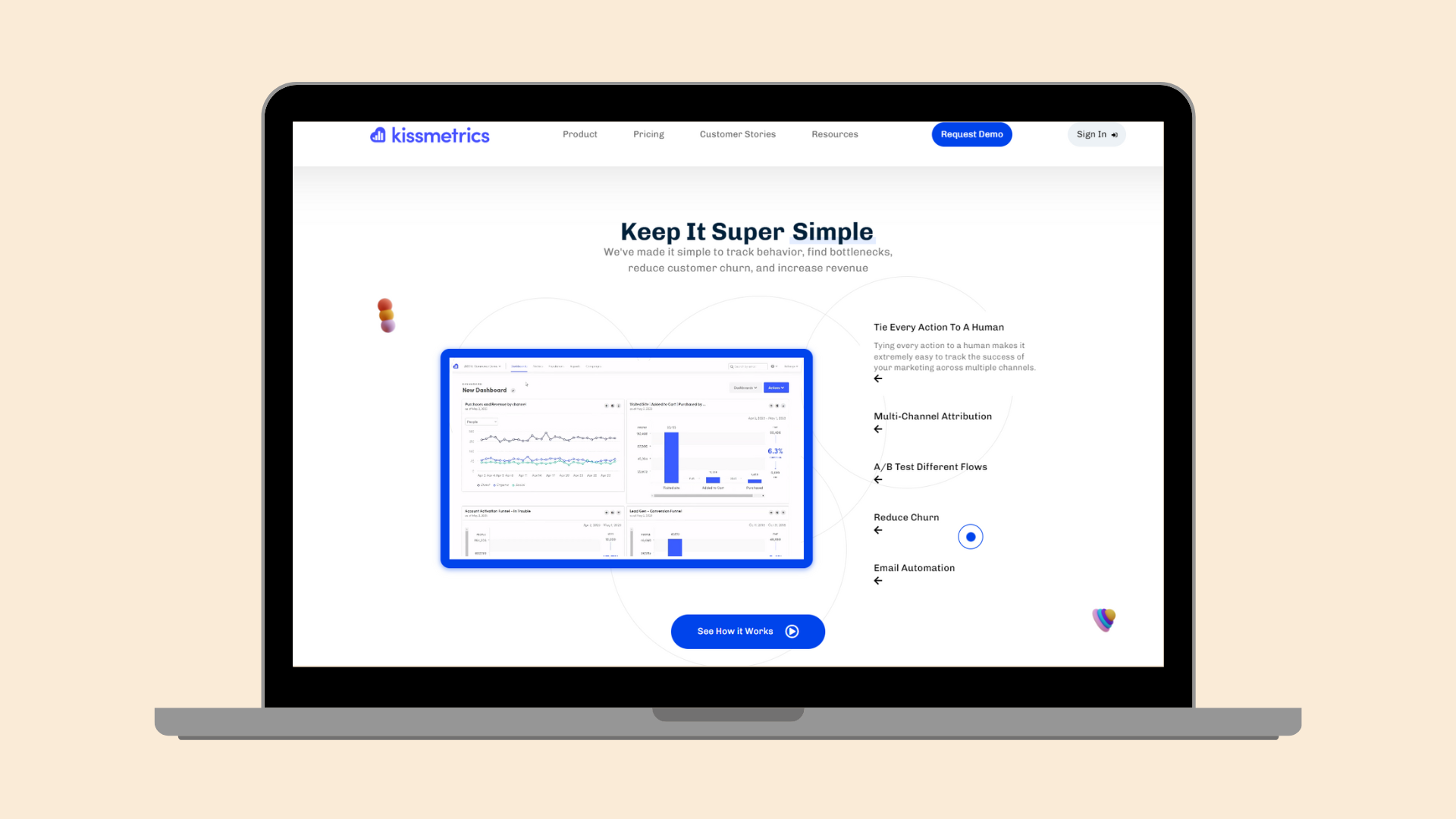
KISSmetrics excels in providing detailed insights into customer behavior, which is crucial for e-commerce sites to optimize their sales funnel and improve customer lifetime value.
Focusing on customer behavior and conversion optimization, KISSmetrics offers detailed tracking to understand how users interact with your site over time.
It focuses on tracking individual and group user actions over time, helping businesses to increase customer acquisition and retention rates.
Key Features:
- Customer Journey Tracking: Follows the user journey to pinpoint critical drop-off points.
- Advanced Segmentation: Users can be segmented based on behavior, demographics, and other custom attributes.
- Funnel Reports: Visually analyze where users convert or drop off during the buying process.
- A/B Testing Data: Track the performance of different webpage variants to improve conversion rates.
- Retention Analysis: Understand how well the business retains customers over time.
Pros:
- Deep Customer Insights: Tracks individual visitor behavior across multiple devices and sessions.
- Optimization: Helps in fine-tuning marketing strategies for better ROI.
- Integration: Can be integrated with other platforms to extend its capabilities.
Cons:
- Learning Curve: Requires a good understanding of analytics to fully utilize its features.
- Cost: May be expensive for small businesses compared to other analytics options.
- Setup Complexity: Setting up can be complicated, often requiring technical know-how or support.
6. Mixpanel
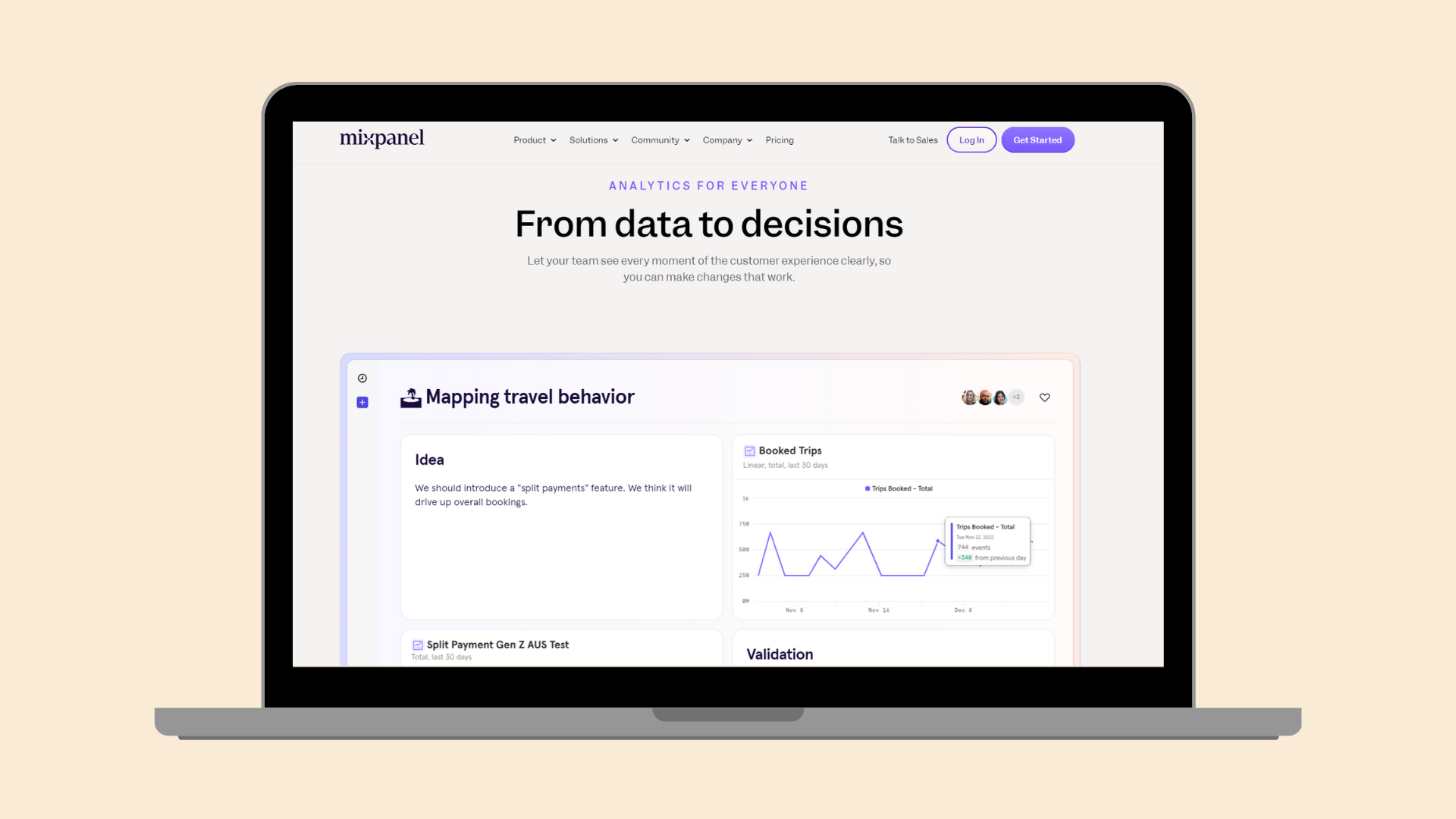
Mixpanel is an advanced analytics service that assists e-commerce businesses in understanding how their customers engage with their products by tracking interactions on web and mobile applications.
Its approach revolves around event tracking, which offers detailed insights into user behavior and the effectiveness of various features and campaigns.
Key Features:
- Event Tracking: Monitor and analyze customer interactions with specific elements on your site or app.
- Funnels: Visualize the customer journey and identify where users are dropping out of the conversion process.
- Retention Analysis: Gauge how often customers return and engage with your product.
- Segmentation: Break down data by attributes like location, device, and behavior to uncover trends.
- A/B Testing: Run experiments to test changes and their impact on user behavior.
Pros:
- User-Centric Data: Offers in-depth insights based on individual user actions and movements.
- Real-Time Data: Access data in real-time allowing immediate response to user behavior.
- Customization: Customizable dashboard and reports tailored to specific business needs.
Cons:
- Price: While there is a free tier, more advanced features can become costly for smaller businesses.
- Complexity: The platform's extensive capabilities come with a steep learning curve.
- Integration Limitations: Some users may find limitations with integrations when compared to other analytics platforms.
7. Woopra
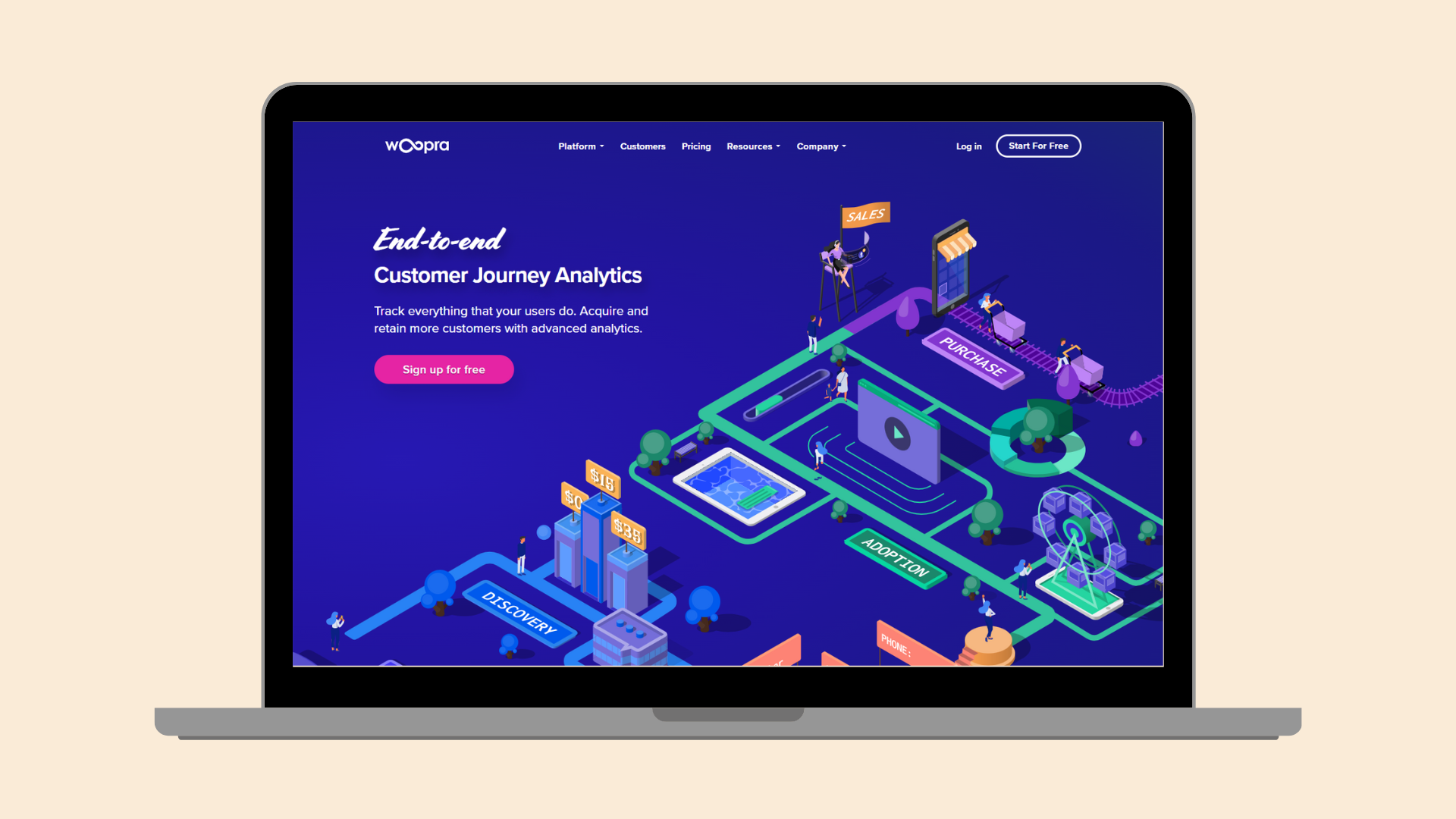
Woopra specializes in real-time customer analytics, providing detailed profiles for every user, including their touchpoints and actions across the website or app.
The platform focuses on tracking individual customer behavior across multiple touchpoints—providing end-to-end visibility into the customer lifecycle.
Key Features:
- Customer Profiles: Create detailed profiles for every user, amalgamating their interactions and behaviors across different channels.
- Journey Analytics: Visualize the end-to-end customer journey to understand the paths leading to conversion or drop-off.
- Real-time Analytics: Offers real-time data to observe user actions as they happen.
- Retention Reports: Analyze how customers return and what keeps them engaged with your e-commerce site.
- Triggers and Automations: Set up actions based on user behavior, such as sending an email when a user abandons a cart.
Pros:
- Customer-Centric Tracking: Focuses on individual user activity for personalized marketing strategies.
- Integrated Approach: Consolidates data from various touchpoints into a cohesive analysis.
- Automation Capabilities: Can automate marketing tasks and user outreach based on data insights.
Cons:
- Complex Setup: The wealth of features requires a considered setup to get accurate insights.
- Pricing: Advanced features come with higher-tier plans, which might be expensive for smaller businesses.
- Data Overload: The depth of data available can be overwhelming for users without analytical training.
8. Crazy Egg
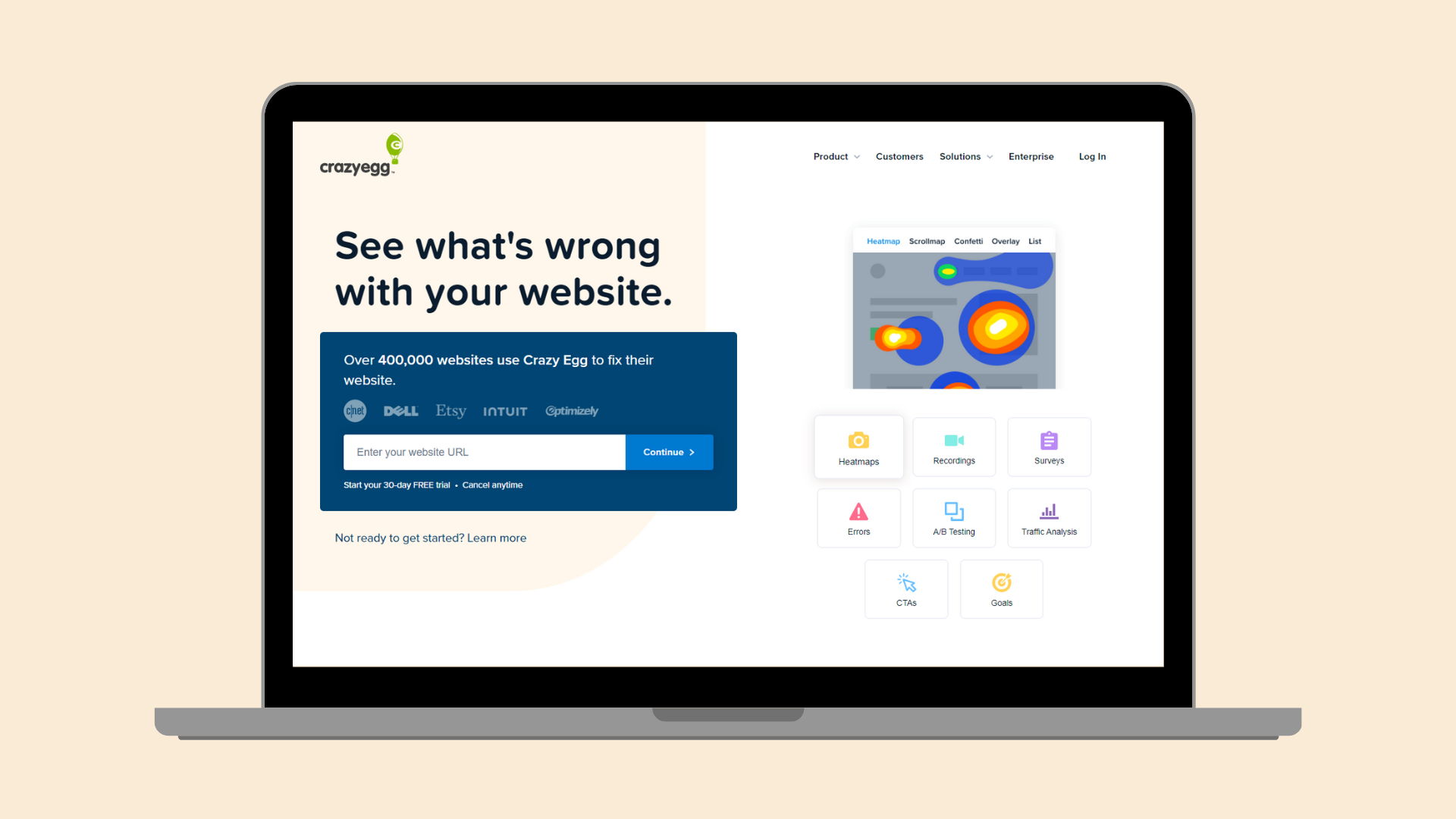
Crazy Egg is a web analytics tool designed to help e-commerce businesses visualize how users interact with their websites.
It specializes in heatmap technology, providing visual reports that show where users click, scroll, and focus their attention while navigating a site.
Crazy Egg is well-suited for businesses looking to gain a better visual understanding of their user's on-page interactions, which can be crucial for optimizing conversion rates and improving the overall user experience.
However, for detailed e-commerce metrics, integrations with other platforms might be necessary.
Key Features:
- Heatmaps: Offers visual representations of where users are clicking on your pages.
- Scrollmaps: Shows how far down users are scrolling, highlighting the most viewed sections.
- Confetti Maps: Segments clicks on your site by referral sources, search terms, and more.
- A/B Testing: Test different versions of a page to see which one performs better in terms of user engagement and conversion.
- User Recordings: Watch actual visitor behavior on your site to identify usability issues.
Pros:
- Visual Analytics: User-friendly visual data ideal for quick insights and presenting to stakeholders.
- Easy to Set Up: Quick installation process with a simple snippet of code on your website.
- Engagement Data: Provides a clear picture of how users interact with website elements.
Cons:
- Limited Metrics: Focused on user behavior, it might not provide the breadth of e-commerce data other platforms offer.
- No Real-Time Data: Reports are not provided in real-time, which might affect decision-making speed.
- Pricing: Beyond the basic plan, it can become costly for additional features and higher-traffic sites.
Conclusion
Choosing the right e-commerce data platform is an investment that can redefine the trajectory of your online business by turning raw data into actionable insights.
Whether your focus is on enhancing user experience, boosting retention, or streamlining the conversion process, there's a solution tailored to your needs.
Consider your business size, technical expertise, and the depth of insight you require when selecting a platform.
Remember, the goal of utilizing these platforms is to leverage data to make informed decisions that drive growth, improve customer satisfaction, and ultimately, boost profitability.
E-commerce is an inherently data-driven domain. By adopting and effectively utilizing a data platform that aligns with your business needs, you lay down the groundwork for sustainable growth and success in the highly competitive online marketplace.
